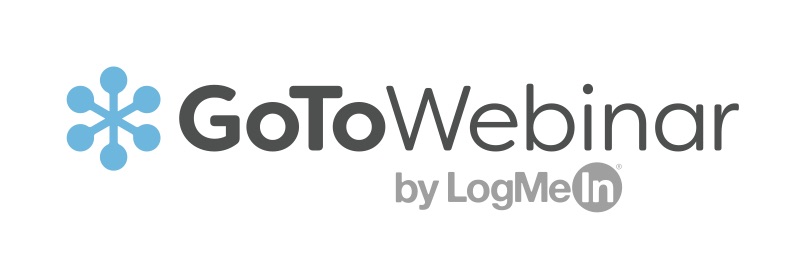If you were on a desert island and still had to build a pipeline for your company, what would you need? DiscoverOrg chief growth officer [subsequently, president] Katie Bullard maintains that the one crucial thing any stranded marketer must have is data.
Don't miss a MarketingProfs podcast, subscribe to our free newsletter!
"What's the most basic step you have to have? You have to have data on your prospects so that you can reach out to them, period," she stressed.
Of course, just having data isn't enough: You have to clean your data often to ensure that your marketing messages are in fact reaching the right people.
"You can have the best content in the world, you can run the best events in the world, you can have the greatest emails," Katie observes. "But if you don't have good data on who the right buyers are—not just what company should I be going after, but who are the people I should be going after—and, one step lower, how do I actually engage with them—what's their accurate email, what's their phone number, their social profiles? How do they prefer to be communicated to? If you don't have all of that, none of the other stuff matters."
I invited Katie to Marketing Smarts to talk about data hygiene, account-based marketing, and martech trends, and she brought plenty of helpful insights and examples to the discussion. Along the way, we also talk about her experience flipping historic homes in Austin, Texas.
Here are just a few highlights from our conversation:
Whatever industry you're in, marketing success comes down to knowing your target buyer inside and out (02:57): "We have a very specific aesthetic, and we figured out who our target buyer was for that aesthetic, because it's not everybody. We realized we couldn't be everything for everybody, so we figured out who the target buyers were for these historic houses, what they wanted in a house, and then we crafted our product to that. That was something that was really fundamental no matter who you market to: Understand your buyer really well, what they want and what they need, and make sure you're delivering on that."
Account-based marketing isn't a single campaign, it's an approach, but you should alter that approach based on your sales cycle (09:40): "We have a really short sales cycle, and I always tell any customer who's thinking about ABM and they're trying to figure out how do they deploy ABM, there's a couple fo things you need to recognize. How big is your sales cycle? How big are the deals you're selling. For us, we have a 30-day cycle. We're not going to go after the same target accounts for an entire year.
"What we typically do is, every quarter we're looking at a new set of target accounts in a specific market and we're executing these plays against that segment over the course of 90-120 days, seeing what the results are, and then, typically, the next quarter, we're looking at another set of target accounts. Now, if I was talking to somebody who had a 9-12-month sales cycle, I would not tell them to do that, but for us that's how it works. The approach that we take is consistent over the course of the year, but the accounts are not necessarily consistent."
Gradually create a relationship with prospects, starting with ads and content and culminating in highly personalized direct mail pieces and even events. (13:39): "We start with ad targeting, and that's sort of to get them warmed up to the brand. So, they'll get served ads and content for anywhere between two and four weeks before we ever start to reach out with email. Then, we'll reach out with emails and with calls, and we personalize those by segment but also by buyer persona. For us, we sell to sales and marketing buyers, so our sales buyers get a different message than our marketing buyers, for instance. And while they're being emailed and called, we do direct mail pieces. What's really interesting is direct mail is one of the most effective things that we do. During [one] experiment, we had a 40% reply rate for our direct mail pieces—really personalized, handwritten letters.
"The best thing that we have done with these experiments is tied them to a particular event, where we're able to pull all of our target prospects together in a really engaging way. For us, what we did...we wanted to create an event that would be a win for our prospects, not just a win for us. In one example, we went to the HR tech conference, where all the major HR technology companies come together, and they're there to get in front of their prospects, the HR executives. We are there to get in front of the sales and marketing professionals at the tech companies. We're there to get in front of the exhibitors, they're there to get in front of the attendees.
"We created a dinner event where we invited senior HR execs from huge brands—Salesforce, Beach Body, Amazon—to talk about how they prefer to be sold and marketed to, what their pain points were, what they were looking at investing in over the coming year—and then we invited the exhibitors to this dinner. So they want to come because it's their prospects that are delivering this presentation, and we're there simply to help moderate the conversation but also to provide some best practices on how to sell and marketing effectively.
"We've done that now for both the HR Tech event and Legal Tech event. Every time, we sell out of the room we've rented and we get such fantastic feedback from the prospects that it's one of the most beneficial events they've ever been to. It's not about our product. It's about getting our prospects into a room where they're also in front of their prospects. It enabled us to create this culminating event focal point across all of our communications up to that point."
Have someone on staff whose job it is to keep your data clean (19:16): "Whether you're a small company or a big company, you should always have somebody who at least half of their job is really optimizing the health of your sales and marketing data. It's such a fundamental lever that you will see return on it, even if you're a relatively small company doing that. We always suggest syncing your sales and marketing systems, and then syncing your data provider.
"Almost everybody out there is buying data in some form or fashion or gathering data in some form or fashion. if you don't have a mechanism to keep that data automatically cleansed and enriched and automatically synced across systems, you're doing yourself a disservice. If you are out there purchasing data, make sure the data is really, really accurate, and...that you have a mechanism for keeping it clean and enriched without it being a huge manual effort."
To learn more, check out DiscoverOrg.com, and follow Katie on Twitter @Katie_E_Bullard.
Katie and I talked about much more, including the future of ABM, the importance of video to your marketing efforts, and which tools DiscoverOrg uses as part of their own ABM process, so be sure to listen to the entire show, which you can do above, or download the mp3 and listen at your convenience. Of course, you can also subscribe to the Marketing Smarts podcast in iTunes or via RSS and never miss an episode!
GoTo Webinar makes it easy to produce engaging online events. Whether you want to connect with your prospects, customers or employees, GoTo Webinar has the tools and analytics you need. Start creating interactive and educational webinars your audience will love.
May is ABM month at MarketingProfs! Get tips from GoToWebinar on how to make webinars the star of your account based marketing efforts.
Music credit: Noam Weinstein.
...sign up for free to continue reading
Don't miss a MarketingProfs podcast, subscribe to our free newsletter!
Published on May 3, 2018







